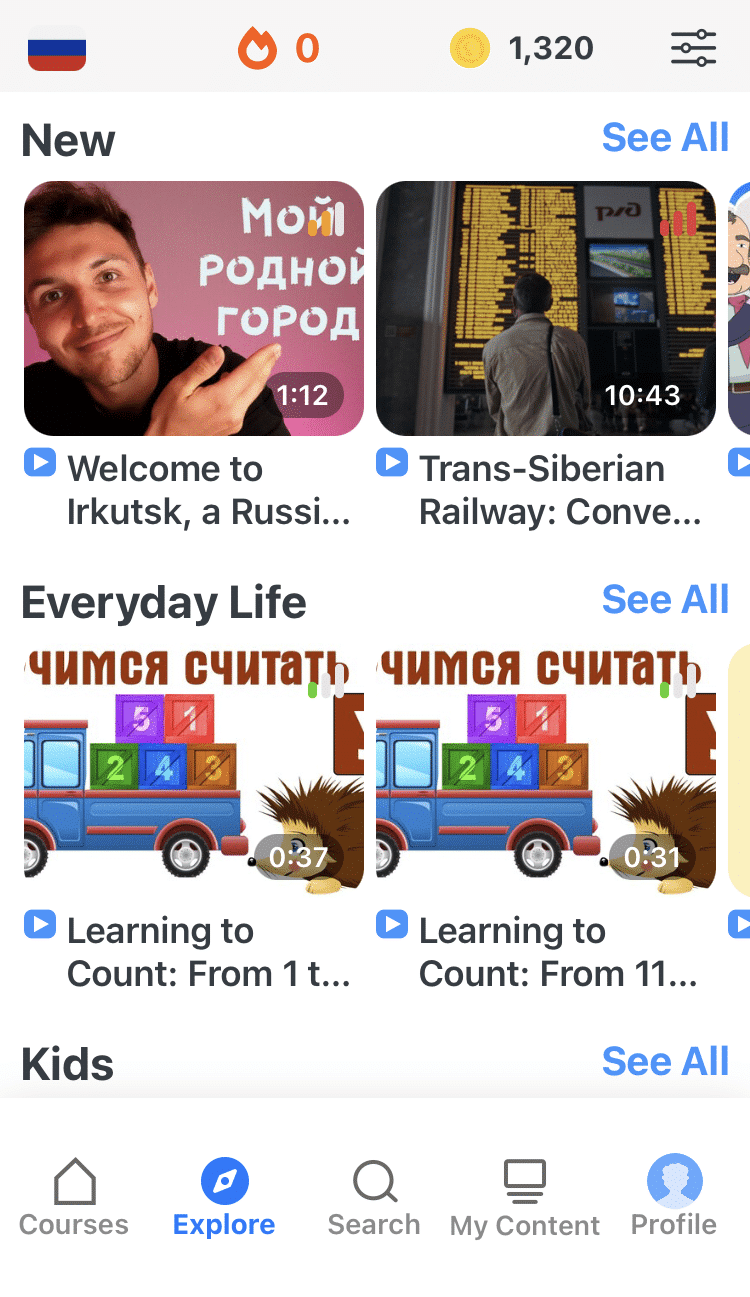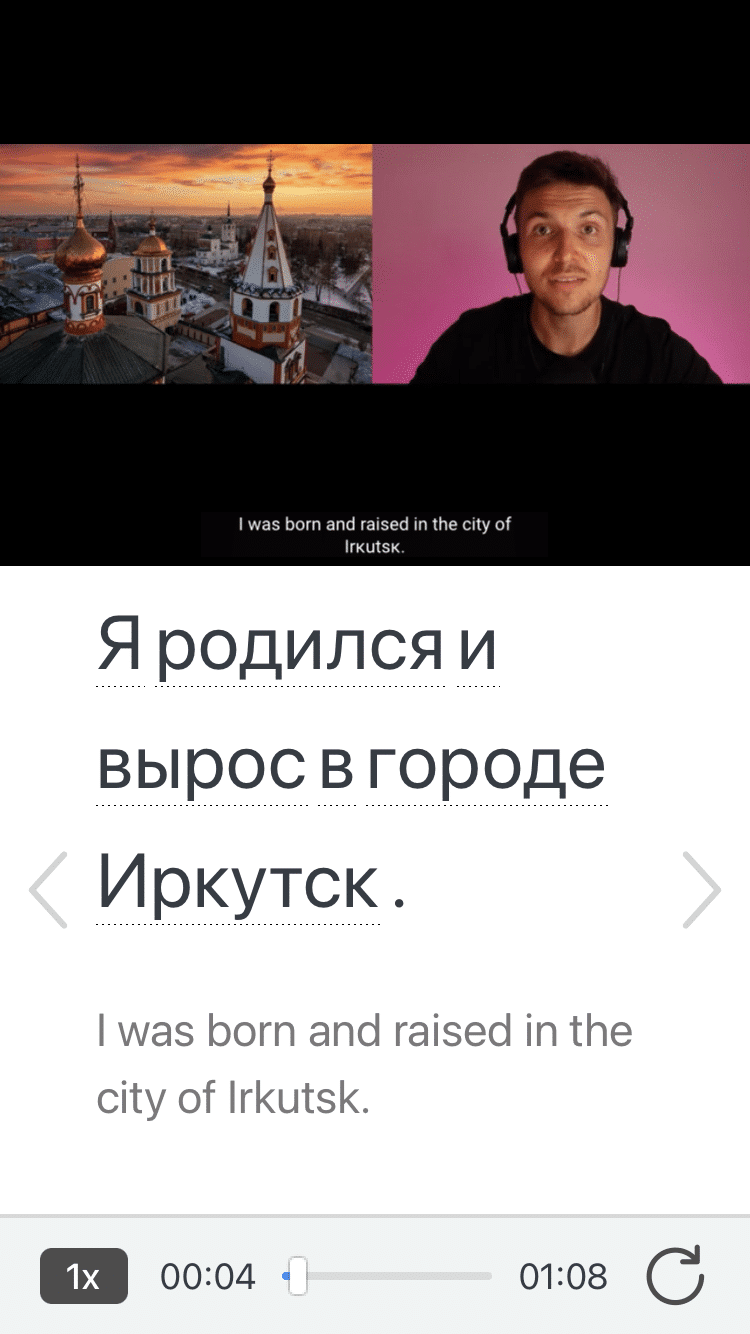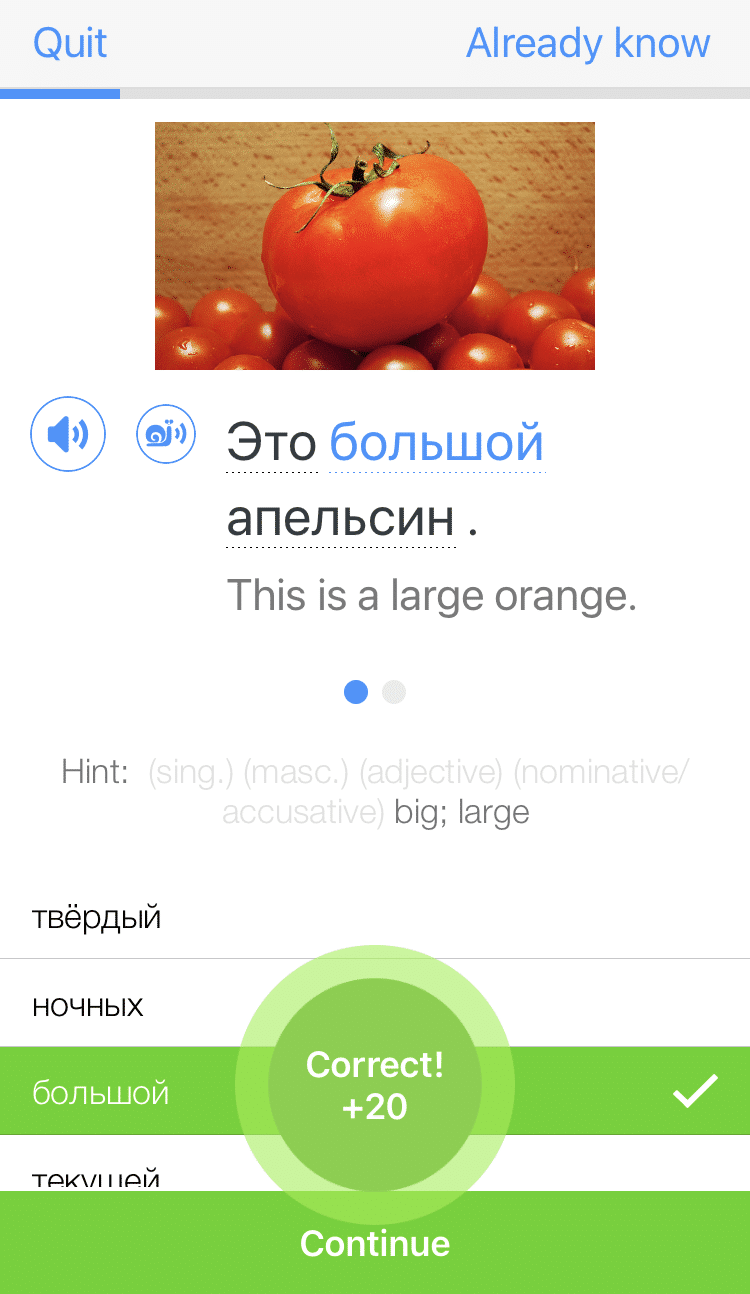
Directions in Russian: 90+ Useful Words and Phrases
Have you ever been lost in a Russian speaking country?
Even though we all have smartphones, they don’t always work when you’re away from home. Plus cell service can be spotty, and some hidden local gems just aren’t on Google Maps.
This is when you need to actually ask the locals. I know that can be scary, but it’s a good thing! Talking to natives means you’ll get the local perspective and probably discover new places—venues an app would never lead you to.
This post will teach you how to ask for directions in Russian, along with providing you with the key vocabulary and essential phrases and questions for helping you communicate about destinations and directions.
Contents
- Cardinal Directions
- Right and Left
- Asking for Help and Directions in Russian
- Words for Landmarks and Establishments
- Modes of Transportation in Russian
- Words for Navigational Markers
- Verbs Related to Directions
- Words for Distance and Time
- Prepositions and Adverbs Related to Directions
- Example Dialogues
- And One More Thing...
Download: This blog post is available as a convenient and portable PDF that you can take anywhere. Click here to get a copy. (Download)
Cardinal Directions
Starting with the basics, here are the cardinal directions in Russian, plus the adjective forms of each direction.
восток — east
восточный — eastern
Восток — это точка, где солнце восходит, а Запад — где оно заходит. (The East is the point where the sun rises, while the West is where it sets.)
запад — west
западный — western
Мы поехали на запад, чтобы насладиться красивыми закатами над океаном. (We went west to enjoy the beautiful sunsets over the ocean.)
юг — south
южный — southern
Мы решили отправиться на юг, чтобы насладиться теплым климатом и кристально чистым морем. (We decided to head south to enjoy the warm climate and crystal-clear sea.)
север — north
северный — northern
В зимний период на севере России температура может достигать очень низких отметок. (During the winter period in the north of Russia, the temperature can reach very low levels.)
Sometimes, you can also travel in a mix of two directions, such as:
- юго-запад — southwest
- юго-восток — southeast
- северо-запад — northwest
- северо-восток — northeast
Right and Left
Anytime you ask for directions, you’re likely to get a response that directs you right or left.
справа — right
Магазин справа от дороги предлагает широкий выбор товаров. (The store to the right of the road offers a wide selection of goods.)
слева — left
Моя книжная полка находится слева от рабочего стола. (My bookshelf is located to the left of the desk.)
These are the basic words for “right” and “left,” with literal meanings of “right side” and “left side.” In addition to these, Russian also features adverbs that indicate a direction or movement in a rightward or leftward direction:
направо — on the right/to the right
Пройдите вперед, а потом сверните направо. (Go straight ahead, and then turn right.)
налево — on the left/to the left
Пройдите прямо, а потом сверните налево у большого здания. (Go straight ahead, and then turn left at the big building.)
Asking for Help and Directions in Russian
You can only get help if you start asking questions in Russian. Let’s start with a few options you can use when addressing an unfamiliar person.
Извините, Вы не могли бы подсказать… — Excuse me, would you be able to tell me…
The closest literal translation of this construct is “Excuse me, could you give me a hint…” Of all of the polite ways of asking for assistance in Russian, this is the most polite.
Извините, Вы не знаете… — Excuse me, would you know…
Вы не могли бы мне помочь? — Could you help me?
Скажите, пожалуйста… — Tell me, please…
Где находится …? — Where is… located?
Как мне добраться до …? — How can I get to…?
В какую сторону …? — Which way to…?
Как далеко до …? — How far is it to…?
Как мне пройти к …? — How can I get [on foot] to…?
Где находится туалет? — Where is the toilet?
Как добраться до аэропорта? — How do I get to the airport?
Вы не могли бы мне подсказать, где находится вокзал? — Can you tell me where the train station is?
Когда улетает самолёт? — When does the airplane leave?
Вы знаете, во сколько прибывает поезд? — Do you know what time the train arrives?
Куда идёт этот поезд? — What is the destination of this train?
Где находится автобус до Москвы? — Where is the bus to Moscow?
Вы не могли бы мне подсказать, где можно сесть на трамвай до центра Санкт-Петербурга? — Can you tell me where to catch the tram to the city center of Saint Petersburg?
Я опаздываю. В каком направлении находятся выходы на посадку? — I’m late. Which direction are the boarding gates?
Вы можете мне подсказать, какое место моё? — Can you tell me which seat is mine?
Words for Landmarks and Establishments
Whether you need to get to one of these or someone is using them as signposts on your route, you need to be able to recognize these common places.
парк — park
музей — museum
стадион — stadium
театр — theater
банк — bank
церковь — church
памятник — monument
магазин — store, shop
аптека — pharmacy
больница — hospital
гостиница — hotel
вокзал — train station
ресторан — restaurant
торговый центр — shopping mall
автобусная остановка — bus stop
Остановка is generally applicable to all modes of public transportation, except the metro (subway) and railway.
станция метро — subway station
железнодорожная станция or железнодорожная платформа — railway station
Modes of Transportation in Russian
The most common local modes of transportation are:
автобус — bus
машина — car
такси — taxi
поезд — train
пригородный поезд — commuter train
Native speakers often refer to commuter trains as электричка . This word literally means “electrical train,” but it’s used in informal contexts to refer to trains on all regional lines regardless of whether they’re electrified or not.
Some cities in Russia retain a network of minibus taxis that are called маршрутное такси (minibus taxi) or simply маршрутка (shuttle bus). They stop on demand along a defined route and sometimes provide a convenient way to reach certain destinations.
трамвай — tram
троллейбус — trolleybus
The routes of rail-less, electric public buses are more common in Russian cities than they are in Western ones.
метро — subway
пешком — on foot
Words for Navigational Markers
A set of directions is likely to include these common elements of topography.
улица — street
площадь — square
район — district
светофор — traffic light
перекрёсток — intersection
квартал — street block
здание — building
дом — house (often used as a substitute for “building”)
дорога — road
мост — bridge
центр города — city center, downtown
корпус — block (used when several buildings share the same number as a complex)
For even more Russian vocabulary, check out this giant Russian vocab list.
Verbs Related to Directions
Common actions to perform in the process of reaching your destination may be conjugated in the imperative or in the future tense, or with a modal verb preceding the infinitive.
повернуть — to turn
проехать — to drive or ride past, to drive for (units of distance/time)
This is a versatile verb that can replace добраться in a question clause or indicate various actions along the way Проедете мимо театра. means “[you will] ride past the theater; Проедете три остановки. is “[you will] ride for three stops.”
попасть — to reach, to get to
This is another synonym for добраться . The other meaning of this particular verb is “to hit the target.”
пересечь — to go across
увидеть — to catch sight of, to see
сесть на — to take a seat on
Words for Distance and Time
When you ask for directions, the answer is likely to include the approximate length or duration of the trip.
час — hour
Such as: Около часа (About an hour) is a valid response to “How far is it?”
минута — minute
Short trips may be estimated in minutes, and каждые пять минут (every five minutes) is the commonplace way to describe the frequency of the public transport schedule.
Russia-speaking countries all use the metric system, so distances will be measured in:
километр — kilometer
метр — meter
Prepositions and Adverbs Related to Directions
далеко — far
близко — close, nearby
направо — [turn/go] right
налево — [turn/go] left
прямо — straight ahead
перед — before, in front of
после — after, past
мимо — past by
возле, около — near, close to
рядом с — next to, by, beside
напротив — across from, facing
по направлению к — towards
через — over, across, through
Example Dialogues
Putting it all together, here is a small sample of what you might use or hear when asking for or receiving directions in Russian.
Q: Извините, Вы не подскажете, где находится ближайшая станция метро? — Excuse me, would you be able to tell me where the nearest subway station is?
A: Конечно, станция “Братиславская” прямо за углом. — Sure, the Bratislavskaya station is just around the corner.
Q: Как далеко отсюда до стадиона? — How far is it to the stadium from here?
A: Пятнадцать минут пешком. — It’s a fifteen minute walk.
Q: Мне нужно попасть на Красную Площадь. — I need to get to Red Square.
A: Идите в ту сторону, а затем поверните направо, когда увидите большой собор. — Walk that way and then turn right when you see the large cathedral.
Q: Вы не можете мне показать на карте? — Can you show me on the map?
A: Конечно. Он примерно здесь. — Sure. It’s right about here.
Q: Как туда лучше всего добраться? — What is the best way to get there?
A: Лучше всего поехать на метро. — It’s best to take the metro.
Q: Туда можно дойти пешком? — Is it possible to walk there on foot?
A: Вам лучше всего сесть на трамвай. — Your best option is to take the tram.
Q: Где находится парк? — Where is the park?
A: Слева от остановки Вы увидите вход в парк. — To the left of the stop, you will see the park entrance.
Q: Вы не знаете, когда будет следующий автобус? — Would you know when the next bus arrives?
A: Следующий автобус прибудет через пять минут. — The next bus arrives in five minutes.
Q: Где находится ближайшая аптека? — Where is the closest pharmacy?
A: Пройдёте мимо церкви, затем повернёте направо, и через два квартала на углу будет аптека. — [You will] Walk past the church, then turn right, and in two blocks there will be a pharmacy on the corner.
And here are a couple of idioms that express how near or far your destination is:
Это в двух шагах отсюда. — It is very close by.
Это чёрт знает где. — It is very far.
Literally, it means “it is the devil knows where,” which is a very colloquial way in which someone may imply that you should rethink your plans to go there on account of the effort it would take.
And finally, do not forget to express your gratitude at the end of the conversation:
Огромное спасибо! — A huge thank you!
A note on language formality: In the Russian language, you only use ты (singular informal “you”) when speaking with children, friends or relatives. Everybody else gets Вы, which sounds and acts like a plural “you” but is capitalized in writing to represent the singular formal word.
A vast majority of interactions that involve asking for directions are going to occur between people who have never seen each other before, so it follows that you will be mostly using formal Russian in these situations.
Well, you are prepared now! Even if you are lost and your phone battery has died, you have all of the necessary tools to ask a local for directions in Russian.
If you love learning Russian and want to immerse yourself with authentic materials from Russia, then I should also tell you more about FluentU.
FluentU naturally and gradually eases you into learning the Russian language and culture. You'll learn real Russian as it's spoken by real Russian people!
FluentU has a very broad range of contemporary videos. Just a quick look will give you an idea of the variety of Russian-language content available on FluentU:
FluentU makes these native Russian videos approachable through interactive transcripts. Tap on any word to look it up instantly.
Access a complete interactive transcript of every video under the Dialogue tab. Easily review words and phrases with audio under Vocab.
All definitions have multiple examples, and they're written for Russian learners like you. Tap to add words you'd like to review to a vocab list.
And FluentU has a learn mode which turns every video into a language learning lesson. You can always swipe left or right to see more examples.
The best part? FluentU keeps track of your vocabulary, and gives you extra practice with difficult words. It'll even remind you when it’s time to review what you’ve learned. You'll have a 100% personalized experience.
Start using the FluentU website on your computer or tablet or, better yet, download the FluentU app from the iTunes or Google Play store. Click here to take advantage of our current sale! (Expires at the end of this month.)
And One More Thing...






